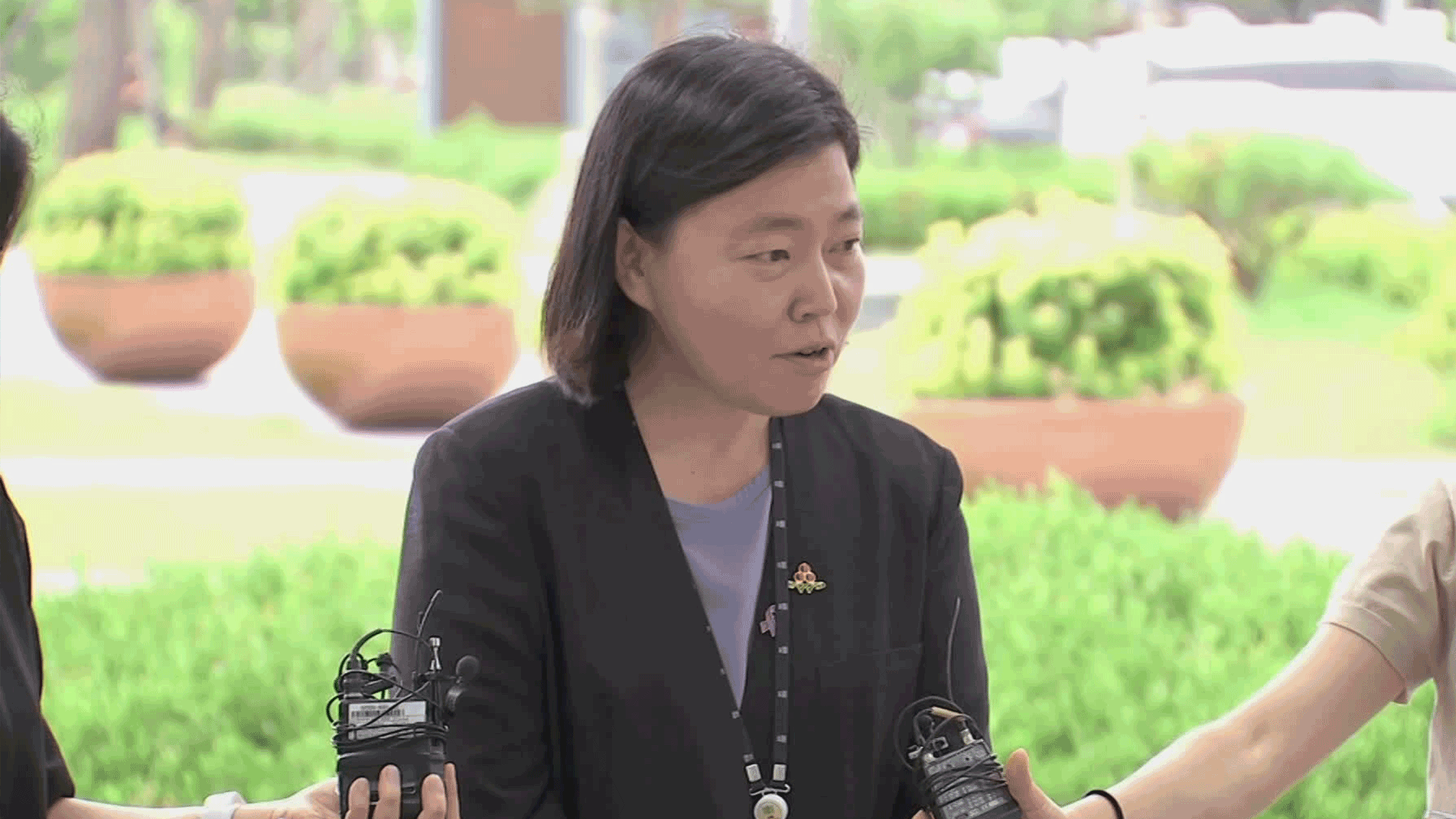[News Today] JANG-MAKING ADDED TO UNESCO LIST
입력 2024.12.05 (16:07)
수정 2024.12.05 (16:10)
읽어주기 기능은 크롬기반의
브라우저에서만 사용하실 수 있습니다.
[LEAD]
We change topics now. Korea’s traditional jang-making culture, involving soybean paste, soy sauce, and red pepper paste, has been designated as a UNESCO Intangible Cultural Heritage. This recognition, marking Korea’s 23rd entry, celebrates the deep historical and community traditions of jang, handed down through generations.
[REPORT]
Every single day, dozens of jars are carefully rinsed.
They are filled with various condiments such as soy sauce, soybean paste and red pepper paste made over the past several hundred years.
"Jang has continued over generations, that is hundreds of years."
The making of sauces known as jang is the art of waiting.
Beans are boiled and then crushed to make blocks of fermented soybean known as meju. The blocks are hung, floated on salt water and dried, repeatedly.
The jang crafted this way combines sweet, bitter, sour and salty flavors. Recipes that differ at each household are passed down from mother to daughter and from mother-in-law to daughter-in-law over generations.
Go Young-suk / Osan resident
When mother made Meju, I would light fire in the cauldron. We also shared it with my married sisters when they visited.
"I therefore declare decision 19.com7b3 adopted."
This unique Korean tradition of jang making has been added to the UNESCO Intangible Cultural Heritage list.
UNESCO took note of the several thousand year old practice dating back to the Silla kingdom era of King Sinmun and how it served as the foundation of Korean diet with a positive impact on family and community culture.
Choi Eung-chon / Administrator, Korea Heritage Service
We vow to put in best efforts to preserve and advance the intangible heritage that can be recognized by and shared with the world.
With the latest addition, South Korea now has 23 entries on the intangible cultural heritage list.
In 2026, the government will push to have hanji or Korean traditional paper-making as the country's 24th listing.
■ 제보하기
▷ 카카오톡 : 'KBS제보' 검색, 채널 추가
▷ 전화 : 02-781-1234, 4444
▷ 이메일 : kbs1234@kbs.co.kr
▷ 유튜브, 네이버, 카카오에서도 KBS뉴스를 구독해주세요!
- [News Today] JANG-MAKING ADDED TO UNESCO LIST
-
- 입력 2024-12-05 16:07:43
- 수정2024-12-05 16:10:02
[LEAD]
We change topics now. Korea’s traditional jang-making culture, involving soybean paste, soy sauce, and red pepper paste, has been designated as a UNESCO Intangible Cultural Heritage. This recognition, marking Korea’s 23rd entry, celebrates the deep historical and community traditions of jang, handed down through generations.
[REPORT]
Every single day, dozens of jars are carefully rinsed.
They are filled with various condiments such as soy sauce, soybean paste and red pepper paste made over the past several hundred years.
"Jang has continued over generations, that is hundreds of years."
The making of sauces known as jang is the art of waiting.
Beans are boiled and then crushed to make blocks of fermented soybean known as meju. The blocks are hung, floated on salt water and dried, repeatedly.
The jang crafted this way combines sweet, bitter, sour and salty flavors. Recipes that differ at each household are passed down from mother to daughter and from mother-in-law to daughter-in-law over generations.
Go Young-suk / Osan resident
When mother made Meju, I would light fire in the cauldron. We also shared it with my married sisters when they visited.
"I therefore declare decision 19.com7b3 adopted."
This unique Korean tradition of jang making has been added to the UNESCO Intangible Cultural Heritage list.
UNESCO took note of the several thousand year old practice dating back to the Silla kingdom era of King Sinmun and how it served as the foundation of Korean diet with a positive impact on family and community culture.
Choi Eung-chon / Administrator, Korea Heritage Service
We vow to put in best efforts to preserve and advance the intangible heritage that can be recognized by and shared with the world.
With the latest addition, South Korea now has 23 entries on the intangible cultural heritage list.
In 2026, the government will push to have hanji or Korean traditional paper-making as the country's 24th listing.
이 기사가 좋으셨다면
-
좋아요
0
-
응원해요
0
-
후속 원해요
0















이 기사에 대한 의견을 남겨주세요.